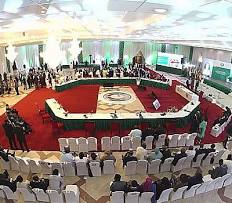ECOWAS parliament divided over planned military deployment in Niger

Members of the Economic Community of West African States (ECOWAS) parliament have expressed differing opinions on the option of military action in restoring democracy in Niger Republic.
According to NAN, the perspectives were shared on Saturday when 22 parliamentarians participated in a virtual extraordinary meeting to discuss the political crisis in Niger.
The regional bloc has been nursing various measures on tackling the military takeover of the landlocked country through a coup on July 26.
In a recent development on Thursday, ECOWAS directed the deployment of standby military troops to restore constitutional order in Niger.
While some parliamentarians insisted on the use of diplomacy and dialogue to address the situation, others were of the opinion that diplomacy has contributed to the increase in the spate of military takeovers in the West African sub-region.
Ali Djibo from Niger Republic said at least 9,000 schools have already been closed down owing to the crisis.
He argued that if the ECOWAS treaty is to be applied in Niger, then it should also be applicable to all other member states in the eventuality of a coup.
War will only compound the economic woes the people of the sub-region are already going through,” Djibo said.
“As we speak, over a thousand trucks, loaded with goods, are stranded at the border.
“If a coup happened in Nigeria or Cote’d’Iviore tomorrow, where’s the ECOWAS going to mobilise troops to fight the Nigerian or Ivorian military? How many borders are we going to close?
“We must also bear in mind that if we’re applying the ECOWAS treaty, it should be applicable to all.”
Awaji-Inombek Dagomie Abiante, Nigerian lawmaker representing Andoni/ Opobo–Nkoro federal constituency, said ECOWAS must pay keen attention and treat the root causes of coups in member states.
Also speaking, Linda Ikpeazu, Nigerian lawmaker representing Onitsha north and south federal constituency, said there were no consequences of the coup in the past — especially in Mali, Burkina Faso and Guinea — hence a repeat in Niger Republic.


Recent Comments